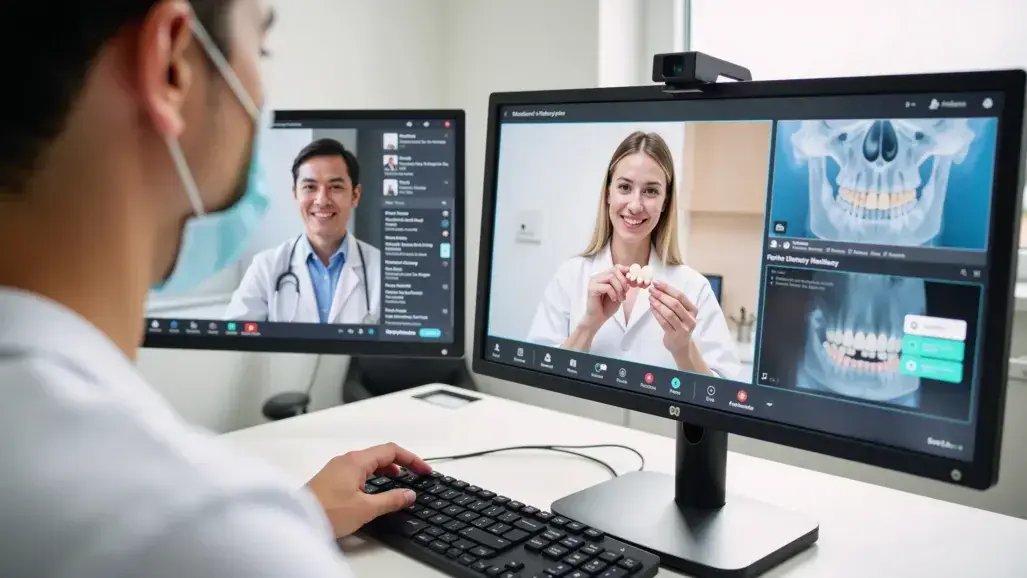
WhatsApp-Based Dental Consultations in Indonesia: A Mixed Success Story
A groundbreaking teledentistry program in Indonesia has achieved notable success in improving daily oral hygiene practices, but researchers caution that virtual consultations alone may not be sufficient for building long-term patient confidence in oral self-care.
Bridging Indonesia's Dental Access Gap
Indonesia faces unique challenges in delivering dental care across its vast archipelago of 17,000 islands. Geographic barriers and cost constraints significantly limit access to in-person dental services for many citizens. To address this gap, Unilever's Pepsodent brand launched an innovative "talk to a dentist" program that connects Indonesians with qualified dental professionals through WhatsApp—simply by scanning a QR code printed on toothpaste packaging.
An international research team recently evaluated this large-scale digital health initiative to determine its effectiveness in improving oral health behaviors and outcomes.
The Study Design
Researchers conducted a comprehensive evaluation comparing 300 active users of the teledentistry service with a demographically matched control group who did not use the platform. The study examined both quantitative behavioral outcomes and qualitative experiences from both patients and dental professionals.
Positive Behavioral Changes
The results revealed several encouraging improvements among teledentistry users:
Increased Brushing Frequency: Users brushed their teeth an average of 1.06 additional times per week compared to their previous habits—a meaningful increase in preventive behavior.
Extended Brushing Duration: Participants also reported brushing for slightly longer periods, suggesting improved oral hygiene technique.
Enhanced Functional Outcomes: Users experienced fewer difficulties with essential oral functions, including chewing and speaking clearly.
Intention to Seek Professional Care: Nearly two-thirds of users stated they planned to visit dental professionals more frequently, indicating improved health-seeking behavior.
The Confidence Paradox
Despite these behavioral improvements, the study uncovered a surprising finding: users' self-rated oral health status and their perceived control over their oral health actually declined slightly during the program.
The research team suggests this counterintuitive result may reflect a phenomenon known as "educated awareness"—as users learned more about proper oral health through consultations, they became more aware of existing dental issues they hadn't previously recognized. This increased knowledge paradoxically decreased their confidence because they now understood the gap between their current oral health status and optimal dental health.
Dentist Perspectives: Benefits and Barriers
Dental professionals participating in the qualitative portion of the study provided valuable insights into the platform's real-world implementation:
Positive Aspects:
- Served as an effective bridge between patient self-care and professional treatment
- Helped reduce dental anxiety by allowing consultations in familiar, comfortable environments
- Provided scheduling flexibility for both practitioners and patients
- Expanded reach to underserved populations
Operational Challenges:
- Technical Issues: Long onboarding processes made it difficult for some users to access the service initially
- Diagnostic Limitations: Limited image quality through smartphone cameras restricted dentists' ability to accurately diagnose conditions
- Inappropriate Usage: Some users misused the platform with prank inquiries, consuming valuable professional time
- Digital Literacy Gaps: Uneven technological proficiency among both patients and practitioners created communication barriers
Clinical Implications and Recommendations
The research team concluded that while teledentistry can successfully promote preventive oral health habits and expand access to dental consultation, its long-term effectiveness depends critically on integration with in-person clinical care and sustained professional support.
Key Recommendations:
- Hybrid Care Models: Teledentistry should complement, not replace, traditional in-person dental services
- Patient Education: Programs need enhanced educational components to build patient confidence alongside knowledge
- Technical Infrastructure: Investment in better imaging technology and user-friendly platforms is essential
- Professional Training: Dentists require specific training in digital consultation techniques and remote diagnosis limitations
- Follow-up Systems: Structured referral pathways from virtual to in-person care must be established
- Quality Control: Mechanisms to filter inappropriate usage while maintaining accessibility
The Future of Digital Dental Care in Indonesia
This evaluation of Indonesia's teledentistry initiative provides valuable lessons for digital health programs globally. The WhatsApp-based platform demonstrates that accessible, technology-enabled dental consultation can drive positive behavioral changes and expand care access in resource-limited settings.
However, the decline in patient confidence highlights a critical insight: knowledge alone isn't enough. Effective teledentistry programs must also:
- Provide reassurance and support
- Facilitate timely access to definitive treatment when needed
- Build patient self-efficacy through guided skill development
- Maintain continuity of care through integrated digital-physical care pathways
Implications for Indonesia's Healthcare System
With the Indonesian Ministry of Health and the Indonesian Dental Association actively promoting teledentistry expansion, this research provides timely evidence to guide program development. As virtual dental consultations become more prevalent, policymakers and healthcare administrators should prioritize:
- Quality standards for digital dental platforms
- Insurance and payment models that support hybrid care
- Regulatory frameworks ensuring patient safety
- Training programs for dental professionals in telemedicine delivery
- Infrastructure development to support reliable digital access across all islands
A Model for Other Archipelagic Nations
Indonesia's experience offers a valuable case study for other geographically dispersed nations facing similar healthcare access challenges. The Philippines, Pacific Island nations, and other archipelagic countries can learn from both the successes and limitations of this teledentistry model.
Final Thoughts
The Pepsodent teledentistry program represents an innovative approach to expanding dental access in challenging geographic contexts. While it has successfully improved oral hygiene behaviors and increased dental health awareness, the study reminds us that technology is a tool, not a complete solution.
The most effective oral healthcare delivery will likely combine the accessibility and convenience of digital platforms with the diagnostic accuracy, treatment capability, and confidence-building support that only in-person professional care can provide.
For dental professionals in Indonesia and beyond, this research underscores the importance of embracing digital innovation while maintaining the irreplaceable value of direct patient care and professional relationships.
References:
Original Article:
"Indonesia's teledentistry drive improves oral hygiene but not self-confidence in oral care"
Published on: Dental Tribune International